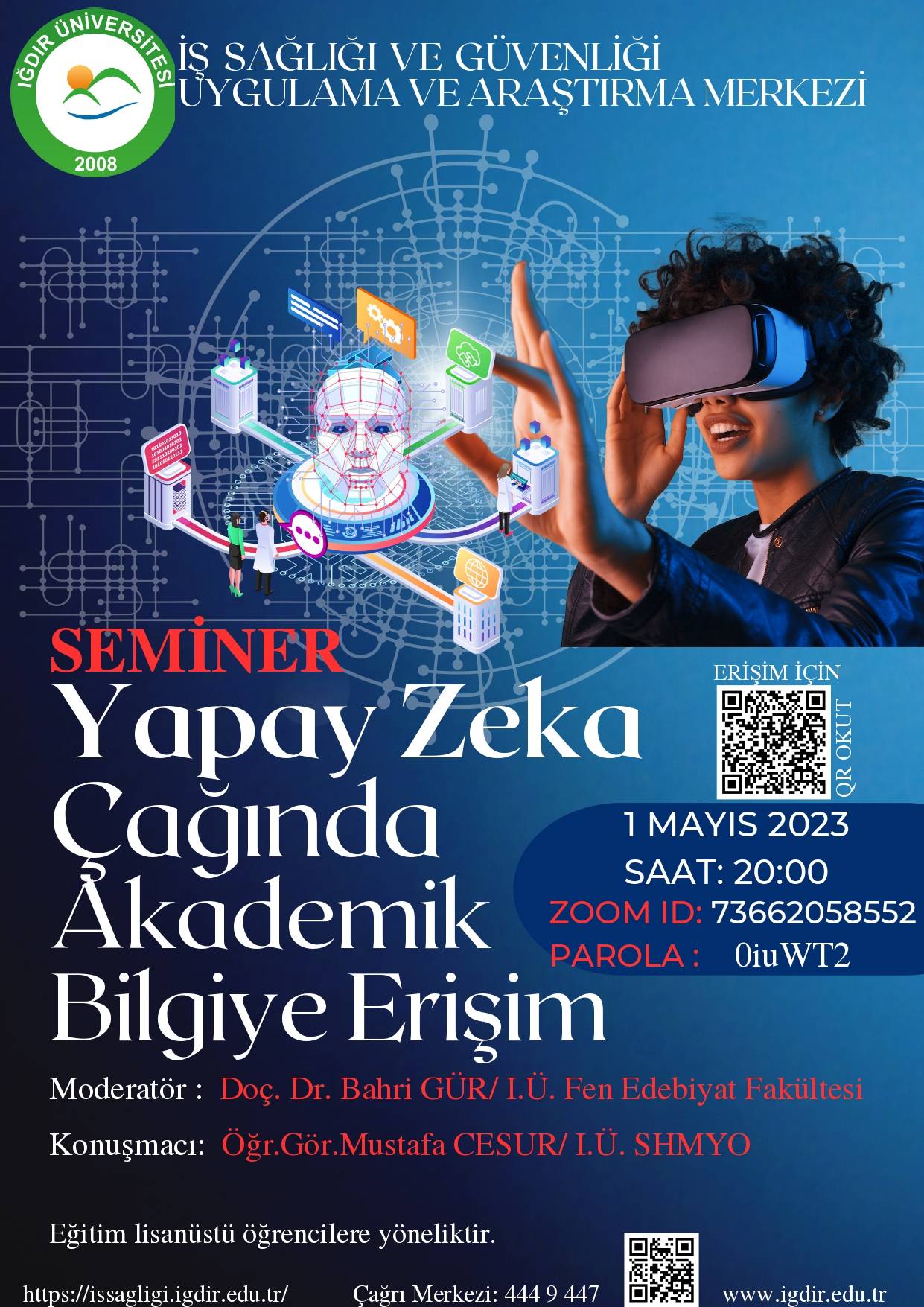“Access to Academic Knowledge in the Age of Artificial Intelligence” Was Discussed at Our University
A seminar titled “Access to Academic Knowledge in the Age of Artificial Intelligence” was organized by our university's Occupational Health and Safety Application and Research Center.
In the online seminar moderated by Assoc. Prof. Dr. Bahri Gür and attended by Lecturer Mustafa Cesur as a speaker, the role of artificial intelligence technologies in accessing academic information resources was evaluated.
At the seminar, it was emphasized that the difficulties experienced in accessing resources such as journals, books and articles where academic research is conducted can be overcome thanks to artificial intelligence technologies.
In his speech, Mustafa Cesur stated that advanced search engines are one of the areas where artificial intelligence (AI) technologies are successfully utilized. "These search engines allow faster and easier access to sources that meet specific criteria. For instance, a researcher can easily find the latest studies, the most cited articles, or the most read journals on a specific topic by using an AI-powered search engine. This way, researchers can access information more quickly and easily, thus enhancing the quality of their research," he said.
“Artificial Intelligence Technologies Perform Summarization More Quickly and Accurately”
Cesur stated that automatic text summarization tools are another area where artificial intelligence technologies are used, and then noted the following:
"These tools save researchers time and effort by summarizing large academic texts. Summarization is a technique frequently used for large academic texts, such as articles or books. With the use of artificial intelligence technologies, this process can now be done more quickly and accurately."
“These Technologies Could Change the Direction of Academic Research in the Future”
Lecturer Cesur stated that artificial intelligence technologies provide broader and more comprehensive access to information in academic research, saying, “For example, a researcher can access articles written in many different languages on a topic by using AI technologies. In this way, researchers can easily reach information that was previously inaccessible. It seems that the challenges in accessing academic information sources will be eliminated with the use of AI technologies. These technologies, which help academic research to be conducted more quickly, efficiently, and successfully, may shape the future direction of academic research.”
